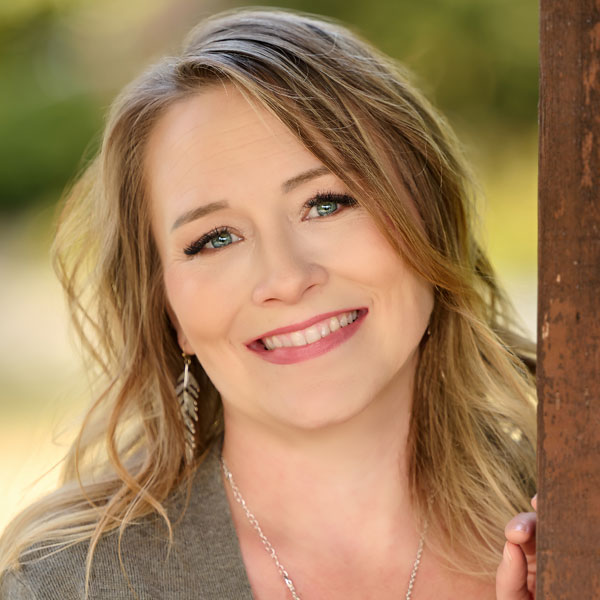Mental health is an important aspect of a healthy life. It is how humans process thoughts, emotions, and behaviors. However, just as adults can develop a mental disorder, children are also susceptible. Many mental disorders begin developing during childhood and the teen years.
Know what common symptoms of mental disorders to be aware of in children.
What are the common symptoms of childhood mental disorders?
Each mental disorder has its own symptoms, but many of them overlap. The problem with diagnosing a mental disorder in young children is that their personalities are still developing. Is the child having a bad day and a tantrum, or are angry outbursts a daily event? Is the child frustrated because adults cannot understand what they are trying to communicate, or is the child physically hostile and violent toward parents, teachers, and siblings?
Therapists use The American Psychiatric Association’s Diagnostic and Statistical Manual, 5th Edition (DSM-5) to help narrow down and diagnose children with mental disorders by following the guidelines. Some children have multiple diagnoses. For example, your child may have Oppositional Defiant Disorder (ODD) and Depression.
Common symptoms of childhood mental disorders include:
- Persistent sadness.
- Persistent anger or irritability.
- Constant worry or fear.
- Panic when overwhelmed.
- Nightmares or night terrors.
- Changes in sleep patterns.
- Rapid weight loss or gain.
- Suicidal thoughts or focusing on death or dying.
A mental health professional can diagnose and properly treat a mental disorder. If you suspect your child needs help with their mental health, contact a counselor today.
What mental disorders in childhood are commonly treated?
 Several mental disorders can begin to develop during the younger childhood years. The sooner you recognize the symptoms, and the quicker your child can begin treatment, your child may have an easier time navigating their way through the changes in thoughts and emotions.
Several mental disorders can begin to develop during the younger childhood years. The sooner you recognize the symptoms, and the quicker your child can begin treatment, your child may have an easier time navigating their way through the changes in thoughts and emotions.
Anxiety disorders
When we think of childhood, we think of carefree days with no responsibility. But in today’s society, many children are under great stress. They deal with the stress of performing and meeting expectations, core responsibilities, sports meets, athletic games, concerts, recitals, other extracurricular activities, and church groups. They also often confront more stressful situations such as emergency and fire drills and (sadly) school shooter drills.
A highly sensitive child or one with a family history of anxiety may feel anxious, worried, and fearful. These emotions begin to drive their behaviors and actions to the point their day-to-day life is affected.
Attention-Deficit Hyperactivity Disorder (ADHD)
The most common symptoms of ADHD include the inability to focus or concentrate, being easily distracted, fidgeting or hyperactive, and compulsive behaviors. Often, ADHD is diagnosed alongside other mental health conditions like anxiety, Obsessive-Compulsive Disorder, or Conduct Disorder.
Since ADHD can follow a child into adulthood, getting help early is critical. A child with a solid foundation of psychological techniques can manage their thoughts and, subsequently, their actions.
Autism spectrum disorder
Autism is a neurological disorder that affects the developmental stage of a child’s life. Typically, a child begins displaying symptoms before three years of age. Children can be considered autistic but be at any point along the spectrum of the disorder. Children with autism have trouble communicating or processing their emotions.
Your child is considered on the autism spectrum if diagnosed with Asperger’s Syndrome, childhood disintegrative disorder, Kanner’s Syndrome, Rett Syndrome, or pervasive developmental disorder. Since autism varies along the spectrum, the treatment plan is highly customized to each child.
Conduct disorder
 Conduct Disorder affects children’s behavior. With this mental health disorder, the child seems to disregard other people’s feelings and will lash out at others. Their behavior is compulsive and hostile.
Conduct Disorder affects children’s behavior. With this mental health disorder, the child seems to disregard other people’s feelings and will lash out at others. Their behavior is compulsive and hostile.
Children with Conduct Disorder may get into trouble with school administration or the authorities. Due to their rash and compulsive behavior, they may be physically violent toward others, engage in substance abuse, or shoplift.
Depressive disorders
Depression is the persistent sadness that lasts for weeks or months. It can bring fatigue, sleep disturbances, inability to concentrate, mood swings, appetite issues, and a loss of interest in hobbies and play. Depression can also lead to suicidal thoughts and attempts.
Depression is the prime symptom of Major Depressive Disorder, Disruptive Mood Dysregulation Disorder, and Persistent Depressive Disorder. If your child’s behavior indicates depression or a depressive disorder, reach out to a therapist for help.
Eating disorders
Typically, eating disorders become noticeable in females at age 12 and older, although more younger girls are beginning to show eating disorder behavior. Eating disorders include Anorexia Nervosa (starving oneself), Bulimia (bingeing and purging to control body weight), and binge eating.
Eating Disorders can be fatal. Without treatment, a child in the grip of an eating disorder will have difficulty returning to regular food consumption. Teens and young adults, ages 15 to 24, are up to ten times more likely to die than their classmates with no eating disorder history.
Oppositional Defiant Disorder (ODD)
 ODD is often diagnosed in children between the ages of eight and twelve. As with Conduct Disorder, children with ODD lash out in hostile ways toward people they know, such as parents, grandparents, siblings, teachers, and caregivers.
ODD is often diagnosed in children between the ages of eight and twelve. As with Conduct Disorder, children with ODD lash out in hostile ways toward people they know, such as parents, grandparents, siblings, teachers, and caregivers.
Children with ODD will blame others and not take personal responsibility. They argue with adults and will annoy others to get attention. They dislike rules made by adults and often lose their temper. Treatment for ODD includes anger management and behavior modification.
Post-Traumatic Stress Disorder (PTSD)
Children can develop PTSD after experiencing trauma, abuse, or a jarring event such as a traffic accident, the sudden death of a loved one, or a natural disaster. The child may have nightmares about the event, relive the event during play, or create the event in art.
A child with PTSD may become withdrawn or have angry or tearful outbursts. They may feel insecure, fearful, or emotionally detached. Any time the child remembers the event or is triggered, they may exhibit panic and fear or become quiet and withdrawn.
What are the common treatments for childhood mental disorders?
Psychotherapy is a standard treatment for mental disorders in children. This includes talk therapy, either individual or family sessions, and Cognitive Behavioral Therapy. Some psychiatrists also combine psychotherapy with medications to assist with anxiety and depression.
Talk therapy not only allows the child and parents to talk about behavior and other issues, but it is also a safe place for sharing. The therapist may offer suggestions to help the child and their family manage the mental health disorder symptoms. The therapist may recommend group therapy with other children in treatment for the same condition for older children.
 Cognitive Behavioral Therapy (CBT) is a science-backed treatment that teaches the child lifelong coping skills. The child will learn to identify negative thoughts and emotions, reframe the thoughts, and change the resulting emotions. Eventually, the child will make decisions that will change their unwanted behavior to more socially acceptable and beneficial behavior.
Cognitive Behavioral Therapy (CBT) is a science-backed treatment that teaches the child lifelong coping skills. The child will learn to identify negative thoughts and emotions, reframe the thoughts, and change the resulting emotions. Eventually, the child will make decisions that will change their unwanted behavior to more socially acceptable and beneficial behavior.
Although the techniques used will serve your child for the rest of their life, CBT is a relatively short treatment. Depending on your child’s mental health condition, the sessions may only last 6-20 sessions. The therapist may assign homework for the child to work on throughout the week. The goal at the end of CBT is for your child to feel confident that they can make their own decisions and control their thoughts and feelings.
The therapist will customize the therapy plan and set goals alongside the child and their parents. The child plays a pivotal role in their own therapy, which also increases self-esteem.
Finding help for mental disorders in children
Mental disorders in children are concerning. As parents or guardians, we want what is best for our children. If you suspect your child is developing mental health issues, contact one of our Christian counselors today for an assessment. A licensed mental health professional will create a mental health treatment plan personalized for your child.
“Fence Climber”, Courtesy of Joshua Earle, Unsplash.com, Unsplash+ License; “Teammates”, Courtesy of Adrià Crehuet Cano, Unsplash.com, CC0 License; “Looking Out Over the Ocean”, Courtesy of Torsten Dederichs, Unsplash.com, CC0 License; “Bored”, Courtesy of Getty Images, Unsplash.com, Unsplash+ License






